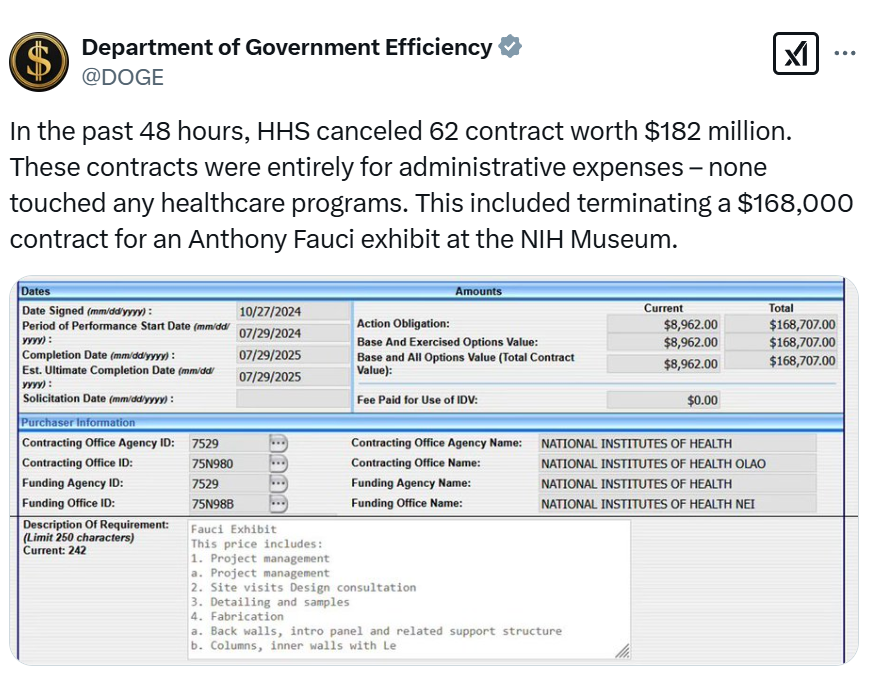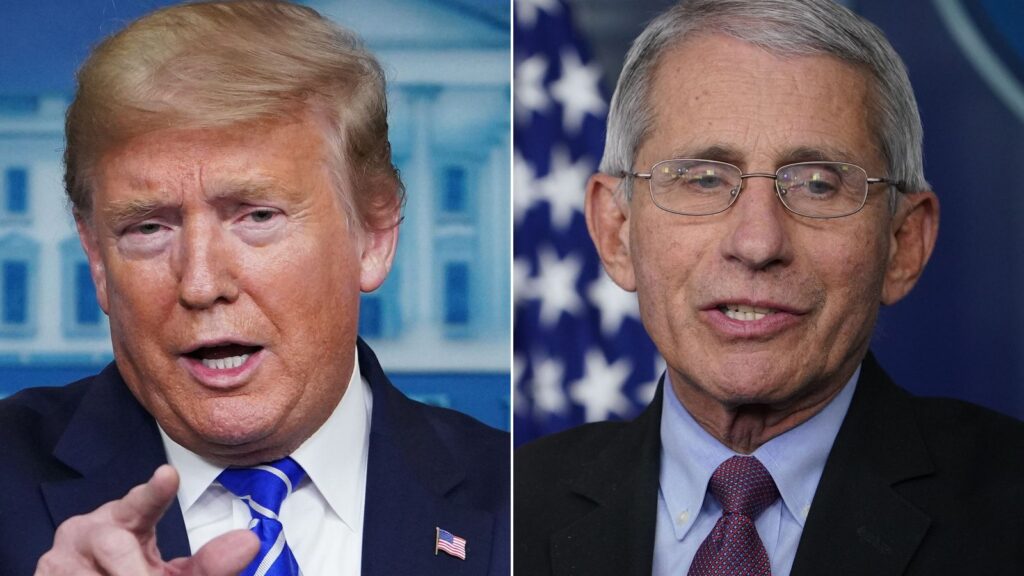The Elon Musk-run Department of Government Efficiency has made yet another disturbing discovery regarding the wildly improper use of American taxpayer dollars, but the good news is they’re not going to be spent after all. According to reports, the National Institutes of Health, where Fauci worked since early in the Reagan administration, was about to spend a large amount of money to build him — and his ego — an exhibit at the National Institutes of Health Museum.
According to DOGE, Uncle Sam had allocated a whopping $168,000 for that project. However, DOGE announced on Friday that the contract for the exhibit has been canceled. This followed the Department of Health and Human Services canceling 62 contracts worth $182 million in just 48 hours. None of that spending was related to providing medical care.
“In the past 48 hours, HHS canceled 62 contract[s] worth $182 million. These contracts were entirely for administrative expenses – none touched any healthcare programs. This included terminating a $168,000 contract for an Anthony Fauci exhibit at the NIH Museum,” the agency announced on Musk’s X platform.

A screenshot of the contract for the Fauci exhibit shared by DOGE revealed that the agreement was signed at the end of October 2024 and was scheduled to be completed by the end of July 2025. This suggests that Elon Musk’s government reform project may have discovered the contract just in time to cancel it. The contract included costs for “project management,” site visits, design consultation, “detailing and samples,” an introduction panel, a “related support structure,” and other elements of the display.
The discovery of this outrageous spending priority, especially for a man who arguably deserves a tribunal rather than a tribute, highlights the current dysfunction in our government. Agencies like the National Institutes of Health and the Department of Health and Human Services, if they have any legitimate purpose, should be focused solely on fulfilling their legal responsibilities as efficiently and effectively as possible, the Western Journal noted in an op-ed.



